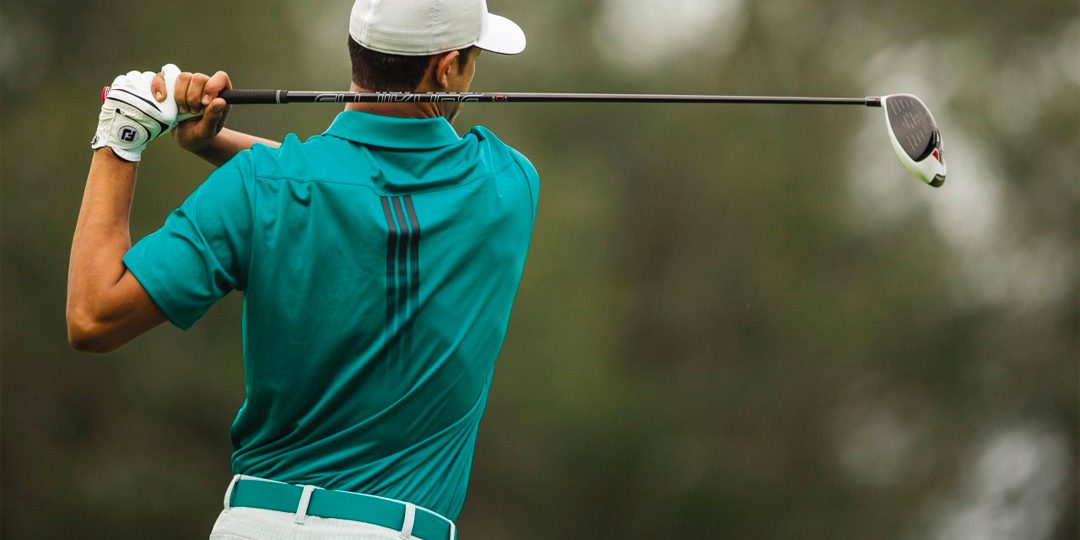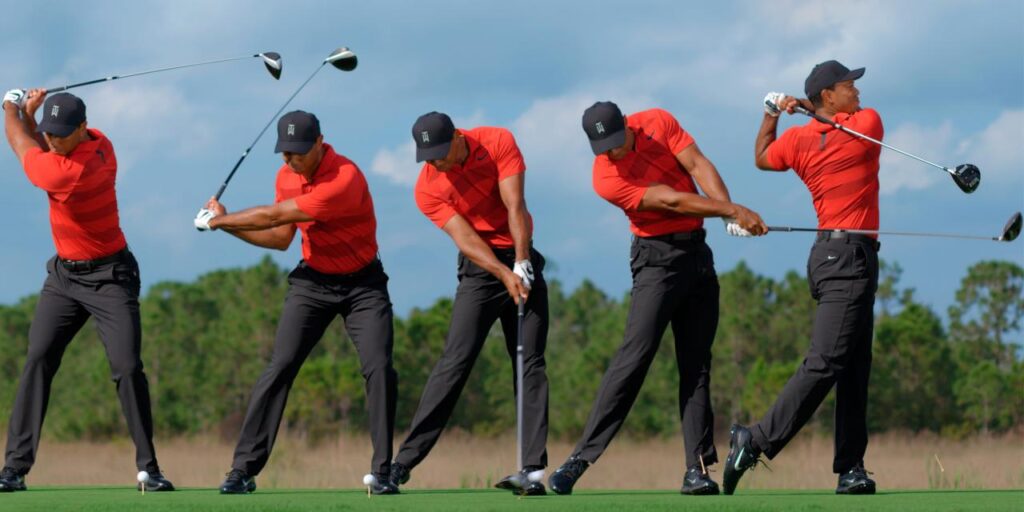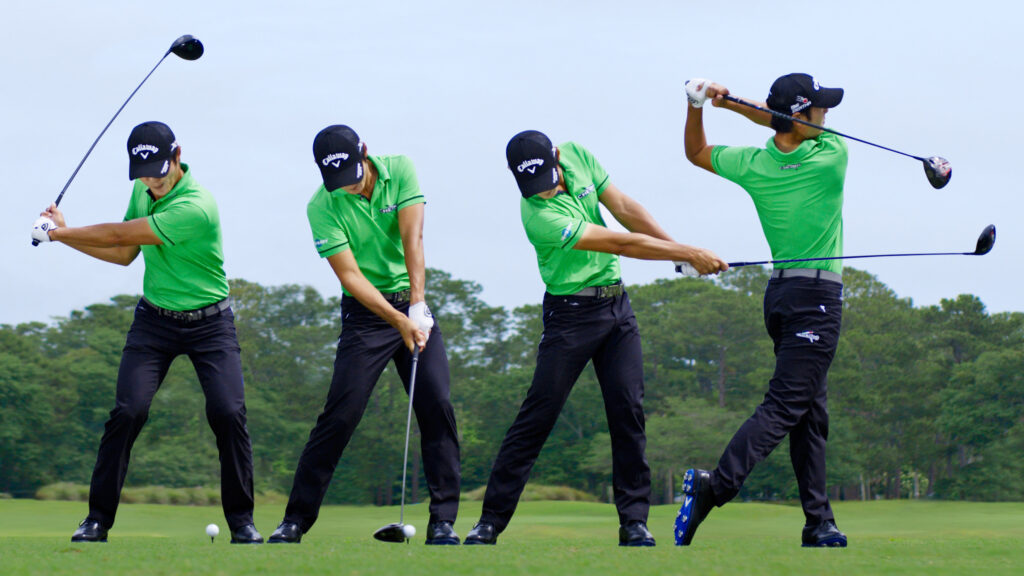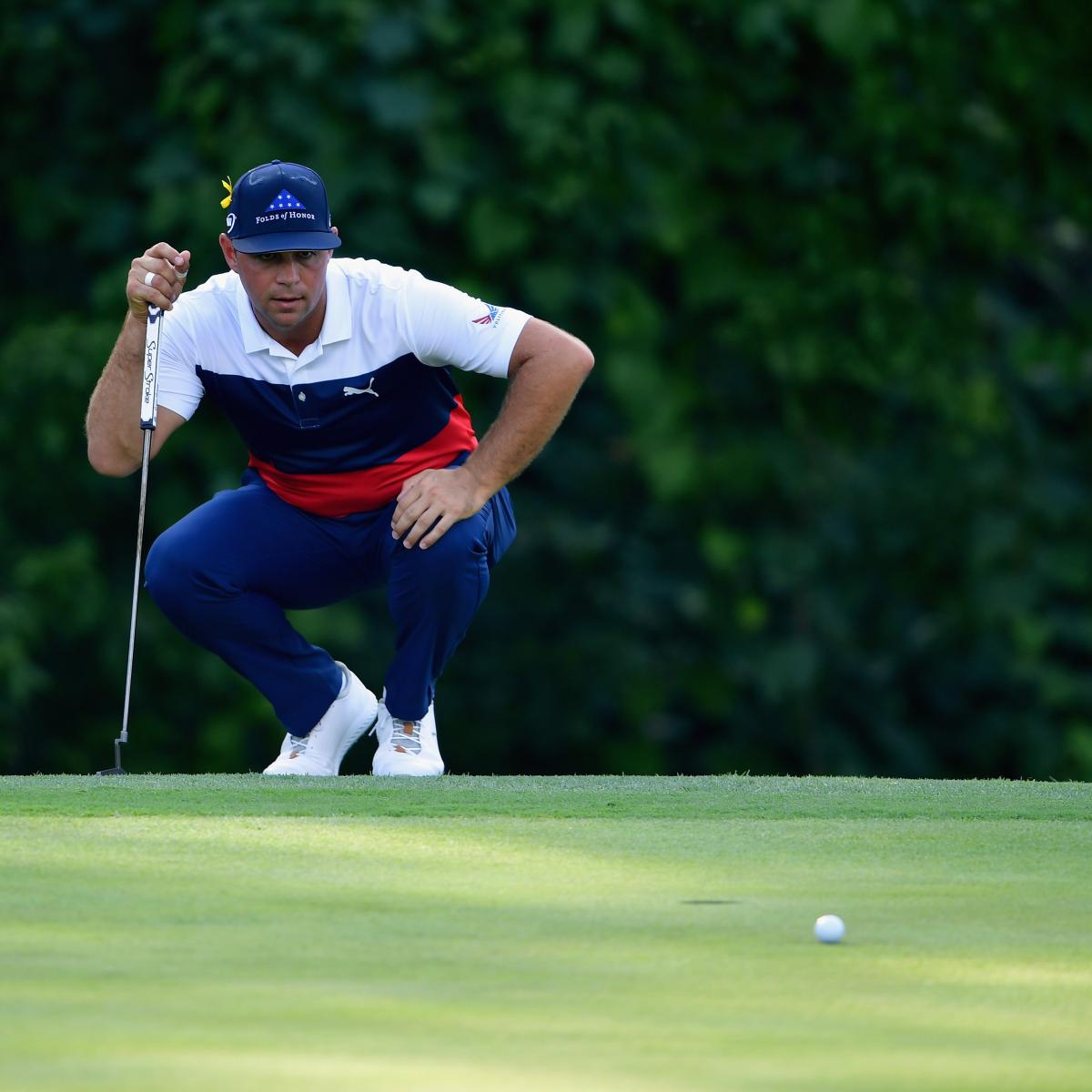
Theory of The Natural Golf Swing
This is the first in a series of articles on the natural golf swing, an alternate theory of hitting a golf ball. Once a month we will review different aspects of the natural swing. In this article we discuss the three basic principals of the natural swing.

If you’re like me, you’re always looking for a simpler and better way of hitting a golf ball. You’re also always looking for a simpler and better way of achieving consistency, power, and distance. In other words, you’re searching for ways of gaining control over the game. That’s difficult. It’s especially difficult for weekend golfers with limited practice time, which is why so many players take golf lessons or attend golf instruction sessions given by teachers like me. Enter: the natural golf swing.
The natural golf swing offers an alternative way of hitting a golf ball than most teachers advocate. Introduced more than three decades ago, it was developed and popularized by George Knudson, a former PGA pro turned teacher. While the natural golf swing is different, it has its proponents, many of whom praise it for its simplicity and repeatability. Proponents also praise it because they say it helps you generate a more powerful, accurate swing and reduce your golf handicap.
Golf is a Stationary Ball Game
The first principal of the natural golf swing is that golf is a stationary ball game. You don’t have to react to it, making it appropriate even for the blind. An assistant places the ball in a specific spot on the ground, and the blind golfer takes his swing. If the ball is in the right place, the golfer hits the ball. The more a blind person plays the better he gets and the lower his golf handicap, at least in theory. Being stationary, though, the ball leads many golfers with sight to hit the ball, not swing through it, which is what they should be doing.
The natural golf swing, on the other hand, promotes swinging through the ball. It holds that golf involves a swinging motion directed toward a target, and that that motion is a whole body swing, which emphasizes swinging through the ball. In other words, we don’t swing at the ball to hit it. Instead, we swing a unit – our hands, arms, shoulders, and club – through the ball toward our target. If the ball is in the right place, we’ll hit it because it is in the natural path of the swing. The club simply travels, as it will, carried along by centrifugal force and inertia, the laws of motion that guide all physical activity.

Giving Up Control
The second principal is that you need to give up control to gain control. With the natural swing, you stop thinking of swing mechanics and what the club does. Instead, you focus on swinging free and easy. The club and the laws of physics do most of the work. It goes along the natural path. You just go along for the ride, letting centrifugal force and inertia do they work.
Centrifugal force is the outward force acting on a body that’s rotating in a circle around a central point. Inertia is the property by which matter continues in its existing state, in motion or rest, unless an external force changes that state. When combined, the two effects generate a powerful, yet accurate swing based on the natural laws of physics; hence, the swing’s name. All a golfer does when he or she swings is set it in motion. And because it follows the natural laws of physics, the swing is easy to repeat. In essence, you’re giving up control to gain control.
Balance is the Key
The third key to the natural swing is balance. The most efficient way of achieving the natural swing is to create motion in which balance is a bedrock fundamental. Now many of my golf instruction sessions address the importance of balance to the golf swing. But for the natural swing, it’s everything. As a golfer employing the natural swing, you do nothing in the swing that is at the expense of balance, since disrupting it leads to a loss of control and power. Since the balanced swing is the most satisfying of all, you’ll enjoy repeating it time and time again. The balanced swing is also the most logical and simplest swing to will get the job done.
Balance. Control. Centrifugal force. These are the key concepts underlying the theory of the natural swing. If you follow these basic concepts as you swing the club, you will generate a naturally powerful, accurate swing that’s repeatable and effective, providing you control over the game and generating a lower golf handicap.
Jack Moorehouse
